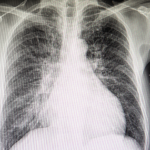
Berdi
urinary Track Health
Ever felt like your chest is filled with cotton wool, or that you’re constantly battling a cough that just won’t quit? If so, you’re likely experiencing chest congestion. While it’s a common symptom of many respiratory illnesses, chronic chest congestion can significantly impact your daily life.
Are you constantly battling the discomfort of chest congestion, struggling to find relief? Managing chronic chest congestion is more than just a matter of comfort—it’s crucial for your overall well-being.
In this comprehensive guide, we delve into the science behind chest congestion, explore the significance of effectively managing chronic chest congestion, and discuss lifestyle adjustments and medical interventions to help you breathe easier.
Chest congestion refers to the accumulation of excess fluid and mucus in the airways and lungs, resulting in difficulty breathing and discomfort. This condition often arises due to infections such as the common cold, influenza, or respiratory tract infections, as well as allergies, asthma, or chronic obstructive pulmonary disease (COPD).
A mucus is a sticky substance produced by the lining of your respiratory tract. It plays a vital role in trapping dust, allergens, and germs that you breathe in. Normally, tiny hair-like structures called cilia lining your airways help propel mucus upwards towards your throat, where you can cough it out or swallow it unnoticed. However, various factors can disrupt this process, leading to excessive mucus production or impaired clearance. This build-up of mucus in your airways is what we experience as chest congestion.

Acute chest congestion usually resolves within a few days to a week, often accompanying a cold or flu. However, when symptoms persist for weeks or even months, it becomes chronic chest congestion. Chronic chest congestion involves persistent or recurring episodes of congestion that last for an extended period, typically beyond three months. It can significantly impair respiratory function and quality of life, leading to fatigue, reduced exercise tolerance, and increased susceptibility to respiratory infections.
Several underlying conditions can contribute to chronic chest congestion, including:
Left unmanaged, chronic chest congestion can lead to various complications. The constant irritation caused by mucus buildup can worsen underlying respiratory conditions like COPD or asthma. Additionally, it can increase your susceptibility to respiratory infections due to impaired mucus clearance.
Furthermore, research shows that chronic chest congestion can significantly impact your sleep quality, leading to fatigue and daytime sleepiness. It can also hinder your ability to exercise and participate in daily activities, affecting your overall well-being.
Fortunately, there are several ways to manage chronic chest congestion and improve your quality of life. Here’s a breakdown of effective strategies:

The common types of medications used for managing chronic chest congestion are
Effectively managing chronic chest congestion is vital for improving respiratory health and overall quality of life. By incorporating lifestyle changes such as hydration, healthy eating, and respiratory hygiene, alongside medical interventions like bronchodilators and expectorants, individuals can experience relief from persistent congestion and breathe easier. For a natural alternative supported by research, consider trying Prospan, an ivy leaf syrup known for its efficacy in relieving chest congestion. Take control of your respiratory health today and experience the freedom of easier breathing.
Chronic chest congestion typically involves a persistent cough (productive or unproductive), chest tightness, difficulty breathing, and fatigue.
Colds typically resolve within a week, while chronic congestion persists for weeks or months. Colds often present with additional symptoms like fever, sore throat, and runny nose, which are less common in chronic congestion.
Yes, allergies can trigger inflammation in the airways, leading to mucus production and congestion.
Drinking plenty of fluids, using a humidifier, and elevating your head while sleeping can help loosen mucus and ease congestion. Prospan, an ivy leaf syrup, is a natural option that may help manage symptoms.
Consult a doctor if your congestion is severe or persists for more than two weeks, if you experience shortness of breath, fever, or bloody mucus, or if you suspect an underlying condition.







©2023 Route2Health®️
NTN: 2229383
AN ASSOCIATED COMPANY OF HIGHNOON LABORATORIES
STRN: 0301999937728

WhatsApp us
